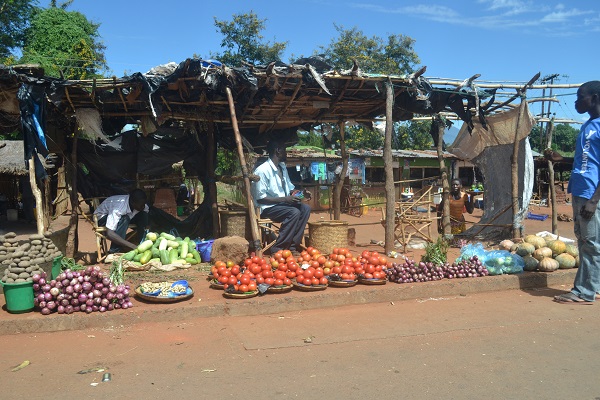How did PROSPER Markets work to develop market systems for resilience?
The role of markets in poverty reduction and resilience is often misunderstood. As summarised by Jason Agar of PROSPER Markets, “People are not poor because they are integrated into markets. They are poor because they are NOT integrated into markets”.
Markets are largely underdeveloped in Malawi, which limits incomes, exacerbates poverty, and reduces resilience of rural communities. Within agricultural markets there has traditionally been a high degree of distortion through over-management, contributing to a lot of distrust between different actors (for short video clips highlighting the perspectives of farmers, traders and buyers, click here).
To overcome this challenge, PROSPER Markets was tasked with building the capacity and performance of private sector actors to improve the quality and quantity of products, services, and that rural Malawians can access, use and supply.
In just over two years of operation, PROSPER Markets achieved significant impacts. Ten private sector actors, nine businesses and one regulator, were investing in markets, giving rise to an estimated 108,000 people with improved access, with 88,400 of these with improved performance e.g. productivity due to better access to input, price gain due to better market access etc., leading to a collective increase in income of over £6.4m. Almost 50% of the farmers experiencing improved sales were women. When looking at the return on investment, each £1 invested by UKAID through the BRACC programme was giving rise to £2.62 in additional incomes.
How did they do this? PROSPER Markets took a multi-pronged approach, working to strengthen the capacity, incentives, and relationships of market actors in the system, without supplanting or subverting them.

Encouraging private businesses to invest in a pro-poor business model was key. This involved a range of approaches, including new marketing channels, launching new products, improved payment terms, accompanying products with relevant agronomic and livestock husbandry training and information, and selling through farmers organisations.
In many cases, the PROSPER Markets team targeted the new and emerging market players – who were more willing to take risks and try new approaches than well-established firms. They included Mandolo (inoculant), Osho (chemicals), Quton (cotton seed), Global Seeds (seeds), and Ziweto (animal health). The key was that, whilst PROSPER Markets facilitated the conversations and innovative ideas, the investment had to come from the businesses themselves – to ensure commitment and sustainability. This was facilitated by partnership agreements on the key terms, rather than binding legal contracts.
The ten private sector actors with whom PROSPER Markets worked increased access to inputs (including seed and inoculants for crops and health products for livestock), access to value-adding opportunities (farming equipment, processing, equipment to scale up operations, and information), and more general integration into markets. This resulted in increased productivity and increased sales, and improved trust and better relationships between different market actors.
One successful example was Incentive-Based Contract Farming in the Kilombero rice market. Under this, farmers were provided with inputs, partly on credit, and asked to supply a particular volume and quality of produce, along with clearing the loan element. Compliance with the conditions led to an increased package of inputs (‘incentive’) in the second year. 915 rice growers took part in the IBCF in year two, following the farmers in year one achieving a net increase of 73% in their incomes compared to non-participating rice growers.
Influencing the regulatory environment is key to the success of market interventions. With significant controls on pricing skewing markets, having pricing at market levels, or above, is essential – although this process needs to be managed due to price fluctuations.
PROSPER Markets sought to improve the regulatory environment through working with the Cotton Council of Malawi, where the lack of regulations and high minimum price setting had in the past led to ginners leaving the market to invest in other countries. PROSPER Markets supported CCM to draft regulations, publish market prices in 2019, and though the provisions of market information to facilitate a revised minimum price in July 2020. The price change led to more crop going to ginners rather than traders, which resulted in price increases to the farmers.
Developing market-based approaches to improving people’s livelihoods has been central to the BRACC programme. Despite a turbulent environment over the last two years (with the Covid-19 pandemic, two presidential elections and major cyclones), the work of PROSPER Markets has shown that partnership work with a clear business case and aligned incentives can contribute to the market development required to support resilient livelihoods. The fact that 83% of farmers with improved productivity were able to find a market and improve incomes highlights how much potential exists for further improving smallholder productivity in Malawi.
